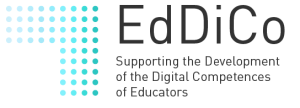Assessment practices for 21st century learning: review of evidence Analytical report
Assessing key competences and transversal skills is a challenging task, as they refer to complex constructs that are not easily measurable. Although assessment policies that support the assessment of traditional key competences such as maths, languages and science have largely been implemented, they are often limited to the contexts provided by the subject matters with which they are most closely associated, and rarely assess related attitudes. Cross-curricular competences and transversal skills are harder to associate with individual subjects and to reflect in specific learning outcomes. An innovative approach to assessment practices is needed to grasp the complexity and multiple roles of modern learning.
This report reviews international research to demonstrate how European education systems can improve their assessment practices to measure and support students’ acquisition of key competences and transversal skills. It addresses the following questions: What are the different roles and purposes of classroom assessment? How can classroom assessment better support ‘21st century learning and teaching’, and what are the key conditions for aligning current assessment practices with the development of key competences? What specific classroom assessment practices are effective to assess the full range of students’ abilities and outcomes? What key recommendations can be made that can serve as important (first) steps to improve current policies on educational assessment?
Reading, Critical Thinking, Reflective Practice
| Provided By | Publications Office of the European Union |
| Type of provider | European project |
| Provided at | online |
| Learning opportunity type | OER |
| Language | en |
| Home page | https://nesetweb.eu/wp-content/uploads/2019/06/AR1_20172.pdf |
| Admission procedure | Open to all |
| Price details | free |
| Type of credential | Open Badge |

